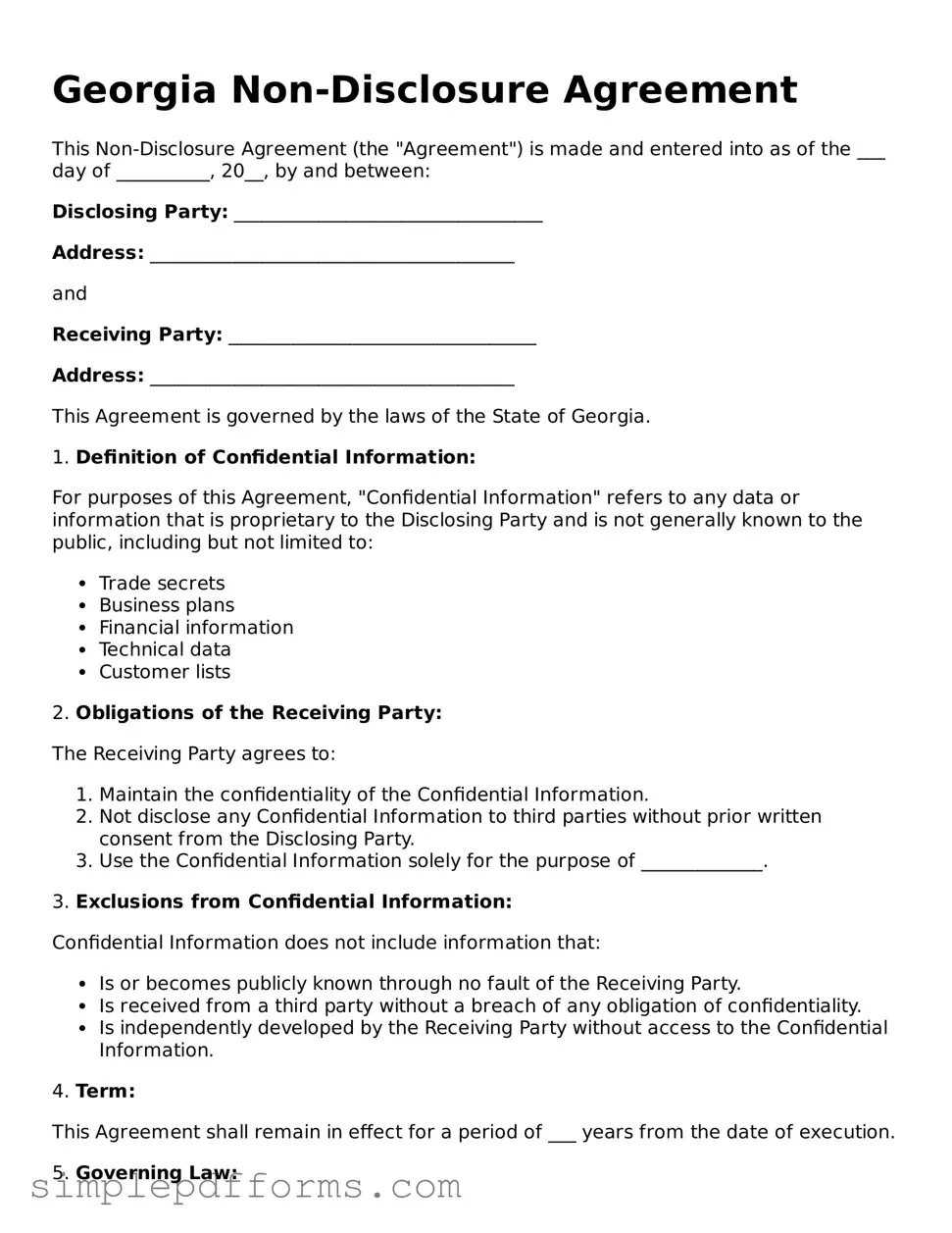Attorney-Verified Non-disclosure Agreement Document for Georgia State
A Georgia Non-disclosure Agreement (NDA) is a legal document designed to protect confidential information shared between parties. This agreement ensures that sensitive data remains private and is not disclosed to unauthorized individuals. By outlining the terms and conditions of confidentiality, an NDA fosters trust and encourages open communication in business relationships.
Open Non-disclosure Agreement Editor Now

Attorney-Verified Non-disclosure Agreement Document for Georgia State
Open Non-disclosure Agreement Editor Now

Open Non-disclosure Agreement Editor Now
or
Get Non-disclosure Agreement PDF Form
Your form is waiting for completion
Complete Non-disclosure Agreement online in minutes with ease.